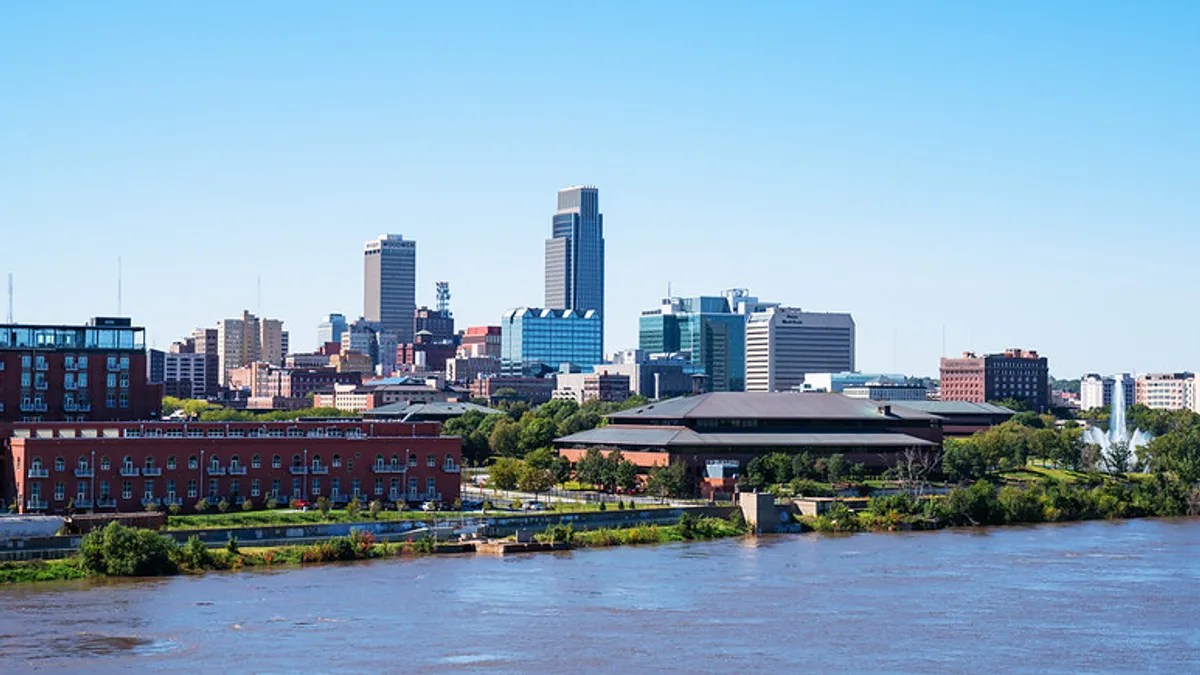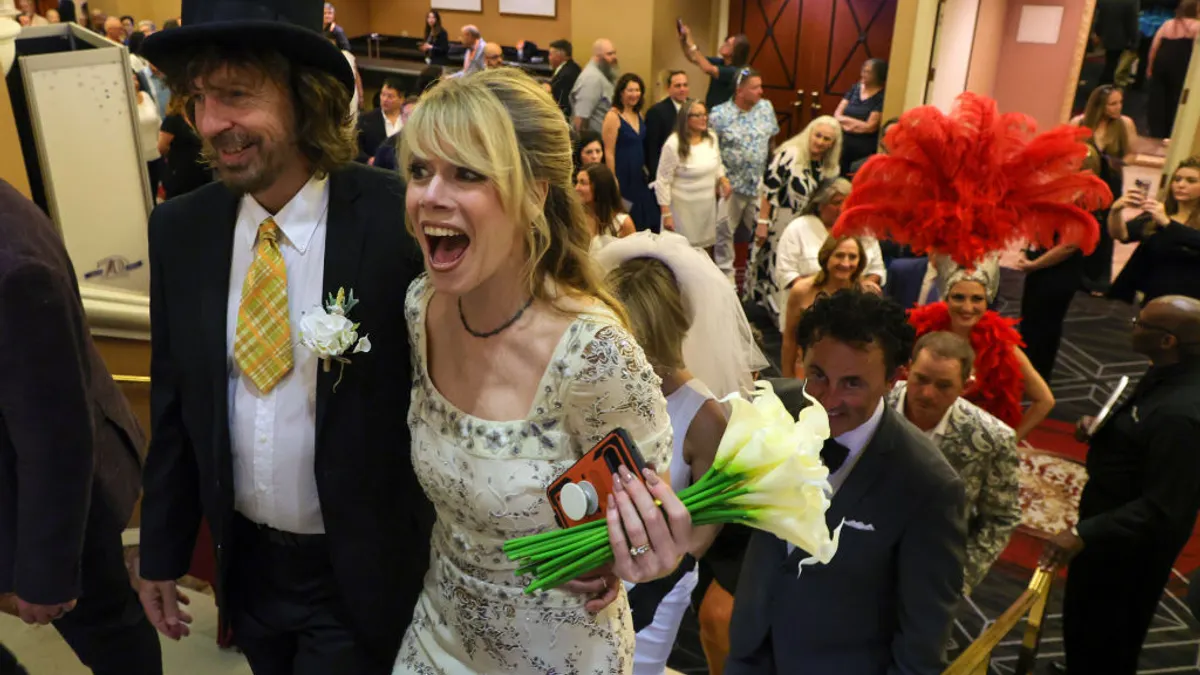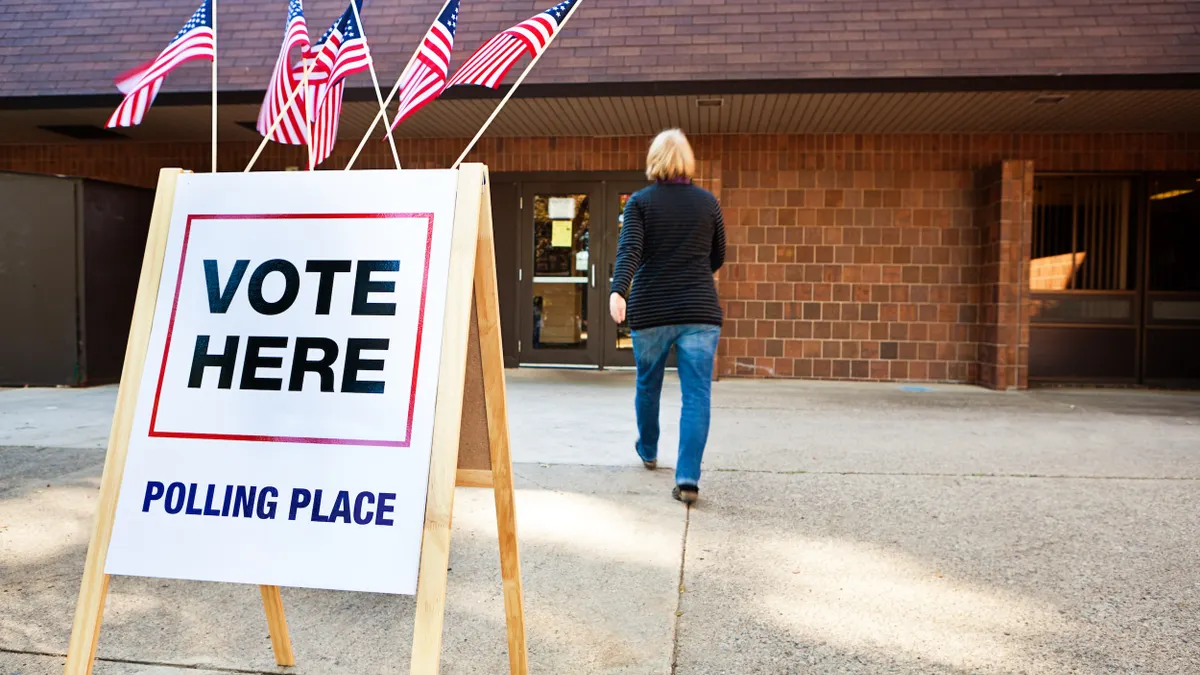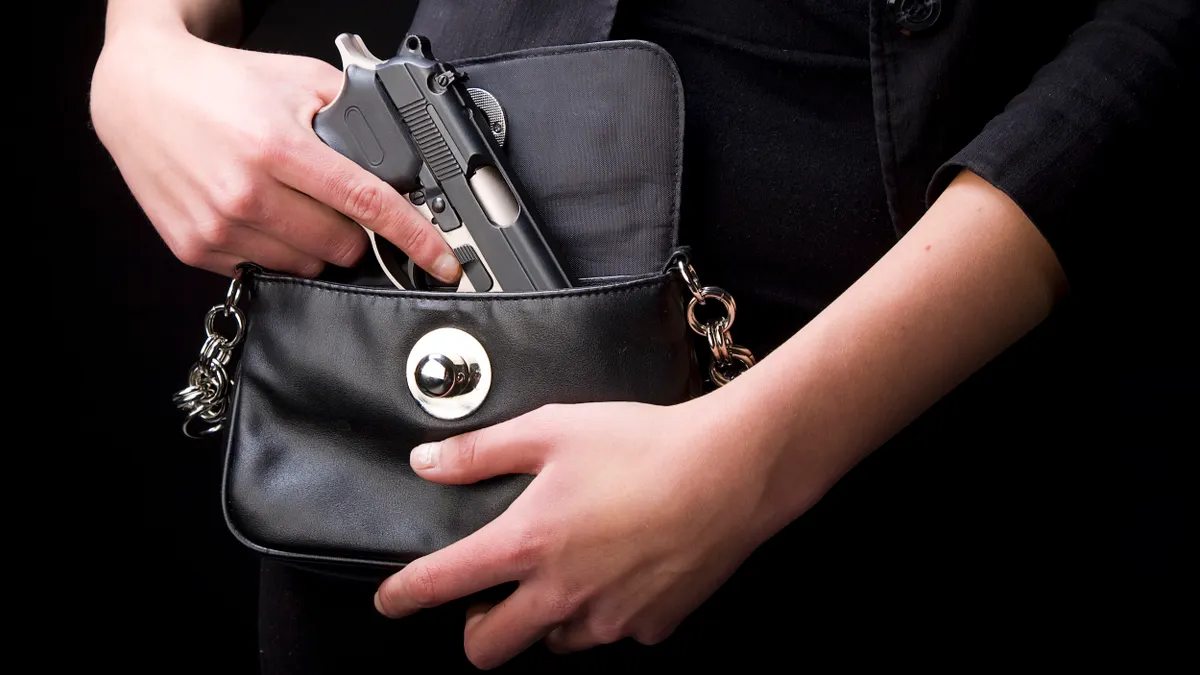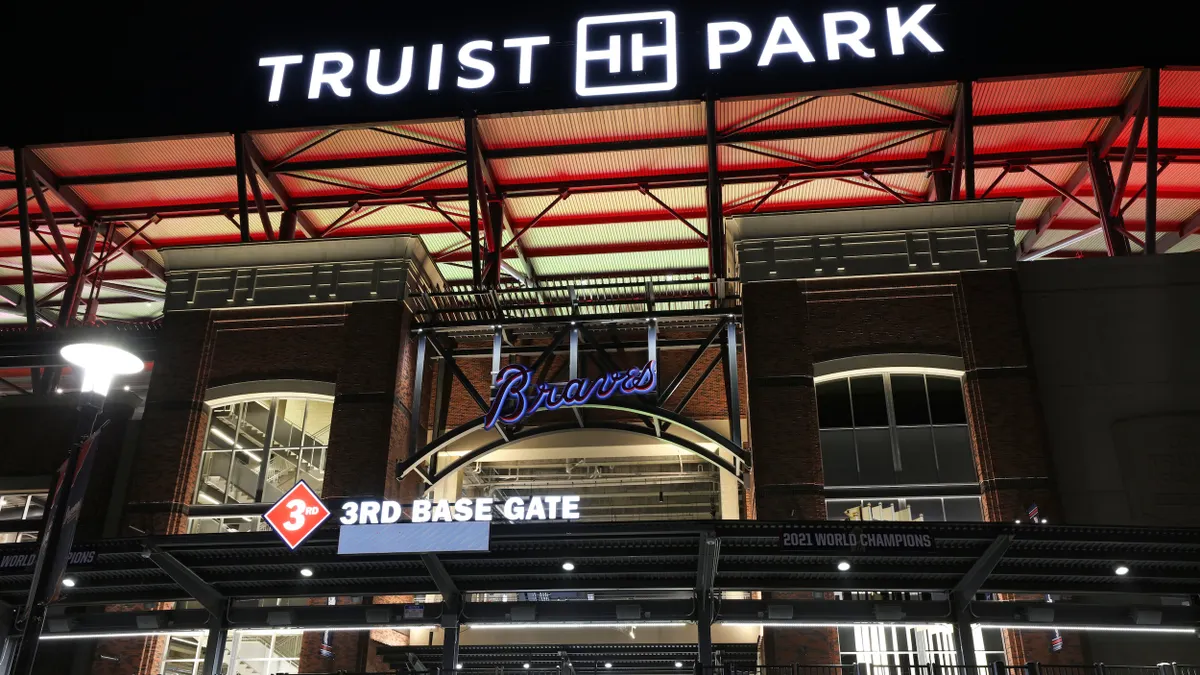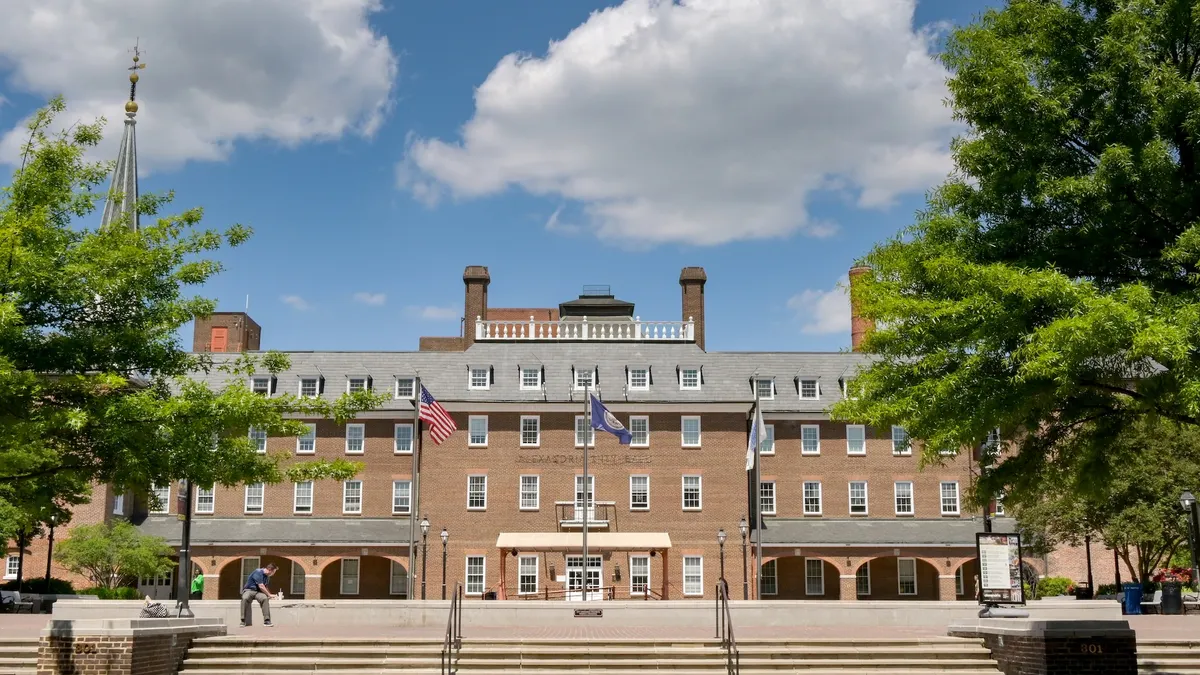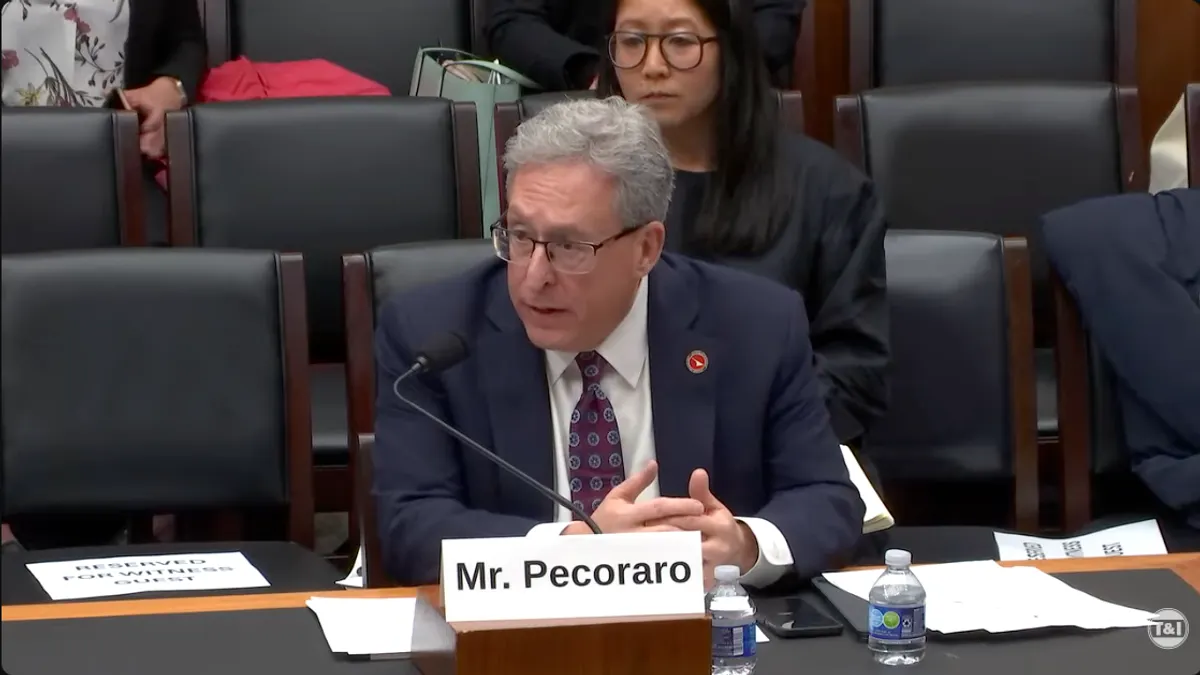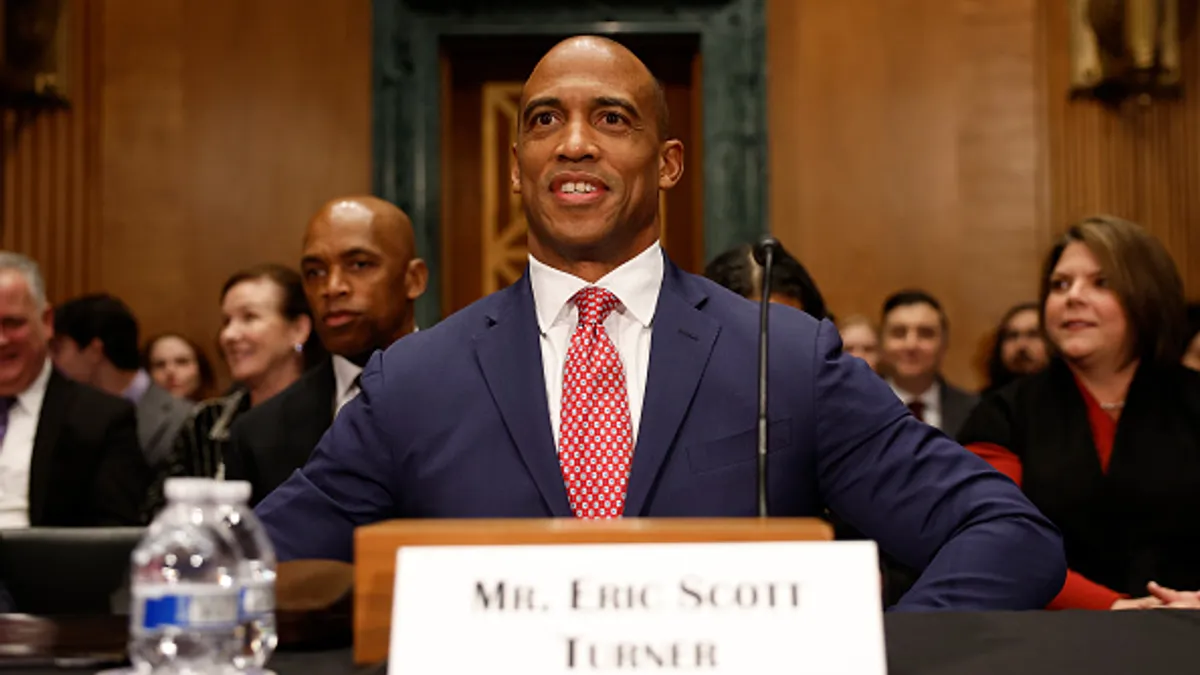On the City of Omaha, NE’s website homepage, a photo of Mayor Jean Stothert sits alongside a message that reads, "Open and transparent government is your right and our responsibility."
Above that, a red ticker shares a link to COVID-19 information, directing users to a lengthy wall of text regarding all coronavirus-related updates the city has shared since March 7. Residents who wish to learn more via the city’s official social media channels, email newsletter or text messaging service, are out of luck: This website is the only active form of Omaha’s communications, outside of Stothert’s own Facebook page.
For a city of nearly 500,000, this lack of communication platforms is seen by some as shocking. Reasons for the lack of outreach, or explanations of what the city is doing to mitigate this challenge, could not be confirmed by Smart Cities Dive, as the city did not respond to multiple requests for information or interviews between April 2-17.
In a Medium post, resident Brian Smith wrote that this "unusual" situation has "real consequences," particularly amid a health pandemic.
"In the normal course of business, it is troubling that the City of Omaha does not communicate directly with residents," he wrote. "In time of crisis, it is unacceptable."
Smith isn’t alone in his concern regarding the city’s approach to communications. Since Omaha confirmed its first case of COVID-19 on March 6, a number of community organizations have launched or ramped up efforts to fill the gaps in Omaha’s information-sharing strategies.
The city’s lack of communication infrastructure has made things "really difficult," said lifelong Omaha resident Dawaune Hayes. "It kind of puts it off to the nonprofits to figure out how to stress this major civic need that isn’t just a convenience. It’s really a matter of life and death."
Picking up the slack
In 2018, Hayes founded North Omaha Information Support Everyone (NOISE), a digital platform designed to engage communities in news regarding politics and local events. Since the onset of COVID-19, NOISE has channeled its energy into coronavirus coverage to inform North Omaha’s communities of color who are particularly susceptible to contracting the virus.
"Any type of health disparity is always going to impact the most vulnerable, who don’t have health insurance, who don’t have the choice to be able to stay at home or have adequate housing," Hayes said.
Morning call w/ #BlackMediaOmaha to develop creative responses to COVID-19 impacting the Black community:
— North Omaha Information Support Everyone (@noiseomaha) April 8, 2020
- Hip-Hop artists to create jingles/use influence
- Regular radio updates
- Cohesive consistent messaging
- Leverage culture to make news more interesting
Traffic on NOISE’s website quadrupled in March as the pandemic spread, Hayes said. NOISE also saw an uptick in subscribers, particularly for its text alert service, which sends out frequent text messages with updates from the mayor’s press conferences.
Hayes, who has worked with Mayor Stothert on various city boards, said the city is "way behind" in its communications infrastructure, noting its current website is like something from "the early 2000s." He questioned the lack of an Office of Communications and said the city needs more multi-language resources. At least 15 languages are spoken in the city, according to Hayes.
Lifelong Omaha resident Kimara Snipe agreed with Hayes’ calls for the city to step up communications, noting Omaha is a "resource rich" town, yet that’s not apparent in the way information is disseminated.
"There’s a lot of philanthropy here, a lot of money floating around," Snipe told Smart Cities Dive. "But what really happens is people don’t sit down at the table together. There’s a lot of silos. Our city leadership has not done a good job at bringing those silos together."
Snipe is heavily involved in Omaha through her work for the city’s public libraries, her role as an elected member on the local Board of Education and her role as president of the South Omaha Neighborhood Alliance. These networks have given Snipe an inside look at community needs, enabling her to communicate information amid COVID-19.
In early March, Snipe created a community-led communications hub called the Omaha Community Response Task Force to provide information, resources and health support to individuals and families across Omaha. A few days following the creation of this task force, Mayor Stothert announced her own Community Response Advisory Board to address COVID-19.
Snipe claims a liaison of the mayor was on the first phone meeting Snipe held to discuss the creation of the task force. The mayor never asked for Snipe’s input in developing Omaha's COVID-19 advisory board, or for general suggestions on ensuring communities are informed.
"Leadership is something I take extremely seriously," Snipe said. "It’s not just a title, it’s something that you actually do. To me, the betterment of the city comes before how I feel about somebody. As a leader, in my mind, you reach out to anybody you can."
Jason Rose, community relations manager for Omaha’s Metro Transit, said the mayor’s office has been plenty communicative with his office. Metro is not a direct entity of the city — it’s a "political subdivision of the state" — but the city has utilized Metro and its fleets to share COVID-19 information with riders and residents, he said.
Metro keeps its website updated constantly, and the agency has been leveraging its MyRide app to push messages to users’ emails or phones, Rose said. For riders that don’t have access to the internet, Metro has also shared information on rider notices or posters.
"We get pretty consistent information from the city. We’re just another mechanism by which people hear the information," Rose said. "We are a bit of a moving billboard."
Learning from the past and prepping for the future
The novel coronavirus pandemic is not the first public health crisis the city has had to address. In 2014, the Nebraska Medical Center in Omaha was a hotspot for treating the Ebola crisis, serving as a top destination for sick Americans, particularly those traveling from West Africa, to receive care.
Snipe was among the patients in the hospital at that time. While her sickness was not Ebola-related, the experience opened her eyes to the resilience of the city’s health infrastructure — and how that impacts community perceptions of leadership.
"There’s a lot of amazing work being done in Omaha, and I don’t think the people who are actually doing the work are actually getting the credit for it," she said. She suggested the city do more to convene with these health care systems to eliminate any existing silos.
About 50 miles south in the capital city of Lincoln (population 290,000), the mayor and the city’s health directors have shared the role as main communicators of coronavirus information for the city. Lincoln didn’t have its first confirmed COVID-19 case until March 20 — two weeks after Omaha’s first confirmed case — giving Lincoln an opportunity to assess Omaha’s approach to mitigation.
"Things spread a lot more rapidly in Omaha, and I think we learned a lot from their experience," Diane Gonzolas, manager of city communications for the City of Lincoln, told Smart Cities Dive.
Lincoln’s website offers an entire COVID-19 resource portal with real-time updates on coronavirus news, links to daily briefings, resident and business resources and volunteer opportunities. The city has translated COVID-19 information to a handful of foreign languages, including Vietnamese, Ukrainian and Arabic, and has directed all city departments to utilize social media solely for coronavirus information.
"There’s a lot of amazing work being done in Omaha, and I don’t think the people who are actually doing the work are actually getting the credit for it."

Kimara Snipe
President, South Omaha Neighborhood Alliance
Lincoln’s priorities are to be accurate, to provide consistent messaging, to be a credible source and to offer hope and support to residents through empathy, Gonzolas said.
"We try to be very, very honest with the public. We try to let them know exactly what it is that we need," Gonzolas said. "When they understand the facts, and they understand that they can have a direct impact, they will take the action that we ask them to take."
This vulnerable and collaborative approach to information sharing and community engagement is what Hayes hopes to see from Omaha’s leadership in the future. Stothert’s office should acknowledge its shortcomings and work with fellow departments and community members to improve, he said.
"It doesn't necessarily have to be a big shame," he said. "It’s okay to not be able to do everything. But if you show that you're willing to try and are reaching out and are connecting, then you’re much more likely to succeed and people will appreciate you for doing that."
And while Omaha’s leadership likely won’t dip into new communication platforms like TikTok or Instagram anytime soon, Hayes said an increased devotion to transparent governance is a place to start, as COVID-19 is far from the last challenge the city will face.
"With Omaha being as large as it is and growing as quickly as it is, and it being the center of the country, we have to be prepared for so many more of these changes," he said. "Effective lines of communication are what’s going to help us do that."
After all, Stothert says transparency is the right of residents, and the responsibility of the Omaha government.
To keep up with all of our coverage on how the new coronavirus is impacting U.S. cities, visit our daily tracker.
CLARIFICATION: This story has been updated to clarify the involvement of the mayor's liaison on Snipe's phone meeting.



